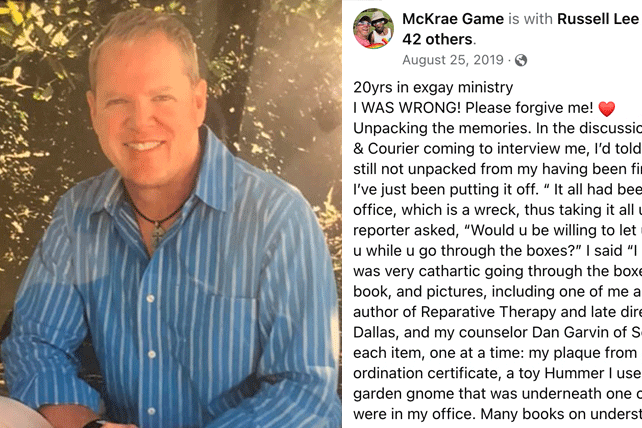Following last week’s on-air renunciation of the prosperity gospel, televangelist Benny Hinn has given two lengthy interviews about what he calls a change of heart. While assuring listeners he wants to focus on Jesus and the gospel, not on “what we get back,” Hinn also maintains that prosperity is a biblical concept.
On Friday, Hinn was interviewed by longtime friend Steven Strang, founder of Charisma Magazine, who says he admires the preacher’s “willingness to step up and endure criticism.” Hinn, 67, says his change of heart about the prosperity gospel and several other teachings wasn’t prompted by his critics (including nephew Costi Hinn) but by concerns about his legacy and by reading God’s Word.
“I don’t want to be known for prosperity,” Hinn tells Strang. “I want to be known as someone who preached the cross of Jesus, salvation, one who teaches on the Holy Spirit…not on money, not on prosperity.” Saying the prosperity gospel involves “manipulation” and “gimmickry” that damage people’s faith, Hinn insists he wants to “focus back on Jesus [and] focus back on the gospel.”
Hinn also doesn’t want to be rebuked when he gets to heaven. “I want the Lord to look at me and smile,” he says. “I’ve injured him enough in the past, I’ve grieved him enough in the past, I’ve disappointed him enough in the past. And I’ve said to him many times—lately especially—‘I don’t want to hurt you anymore.’”
Hinn: Some Teachers Take Prosperity “to the extreme”
Hinn says his change of heart has occurred during the past two to three years, but he debated how—or even if—to “talk to the people of God about it.” A tipping point was realizing how many young leaders look to him for guidance.
He decided to speak out for “the sake of the next generation and the legacy of the gospel,” he says. “I want to make sure the future generations hear the heart of this message that has been…taken to the extreme by some people.” Hinn admits he “became distracted” as his ministry and fame grew but now wants the focus to be on Jesus and the gospel, “not our greed.”
A renewed commitment to Bible reading also impacted the televangelist, who tells David Diga Hernandez of Encounter TV: “I’m reading the Bible for me” now, not for teaching and preaching. “I want to know the way [God] really is.”
In an interview posted Saturday, Hinn tells Hernandez, “My call is an evangelist [and] my message is the cross.” Hinn also refutes claims that he’s worth up to $60 million and lives lavishly. “If I had that kind of money, I would give it to God,” he says.
Old Footage Doesn’t Represent Hinn’s Change of Heart
In last Monday’s Facebook Live broadcast, Hinn insisted “the gospel is not for sale.” But skeptics quickly noted that various ads and clips still feature the televangelist requesting “seed money” from donors.
In a statement this weekend, Hinn says some old footage has been airing by mistake. And speaking to Hernandez, he reiterates that his ministry still has some “cleaning up” to do, which takes time. But Hinn insists he’s determined to “let the world know where I stand” now and to “let them hear the new way I see prosperity.”
Hinn says he’s begun correcting people who hold extreme prosperity beliefs. When one pastor shared how a $1,000 gift led to blessings for his son, Hinn says he replied, “I don’t want to hear it” and then “told him how I felt—and he received it.”
Prosperity Is “in the Bible,” Hinn Maintains
Though he now says extreme prosperity teachings are “an offense to the Lord,” Hinn insists the concept of blessing appears throughout Scripture. “I still believe in prosperity,” he says. “The message of prosperity is in the Bible. We cannot deny that if we give, we will receive. That’s in the Bible. You can’t erase it. No way. God wants to bless his people way more than you want to receive that blessing. But you can’t put a price on it.”












